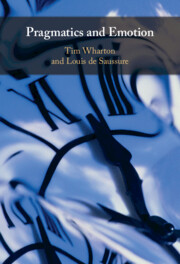Book contents
- Pragmatics and Emotion
- Pragmatics and Emotion
- Copyright page
- Dedication
- Contents
- Acknowledgements
- 1 Introduction
- 2 Pragmatics and Emotion
- 3 What Is Emotion?
- 4 From Proto-pragmatics to Pragmatics
- 5 Relevance Theory, Non-propositional Content and Ineffability
- 6 Beyond Propositions
- 7 Emotion and Evolution
- 8 Pragmatics and Emotion
- References
- Index
3 - What Is Emotion?
Published online by Cambridge University Press: 13 December 2023
- Pragmatics and Emotion
- Pragmatics and Emotion
- Copyright page
- Dedication
- Contents
- Acknowledgements
- 1 Introduction
- 2 Pragmatics and Emotion
- 3 What Is Emotion?
- 4 From Proto-pragmatics to Pragmatics
- 5 Relevance Theory, Non-propositional Content and Ineffability
- 6 Beyond Propositions
- 7 Emotion and Evolution
- 8 Pragmatics and Emotion
- References
- Index
Summary
The goal of this chapter is to answer the question: what is emotion? We begin by presenting a brief overview of the early history of emotion studies, charting a trajectory from the study of emotions from Aristotle in classical times through to the work of St. Augustine and Thomas Aquinas, and from Descartes to Hume. and We then move on to those thinkers who are, arguably, responsible for the very beginnings of modern enquiry into emotion study: Charles Darwin and William James. We offer a summary of the three main theoretical approaches to affective science that exist today: the so-called basic emotion view, the psychological-constructionist view and appraisal theory. We will claim there are a number of reasons to favour the appraisal theory account, one of the principal of which is of these being that there are good reasons to suggest it is the one that marries most successfully with relevance theory, the pragmatic framework we adopt. As such, it offers a route ahead for genuinely interdisciplinary research involving those working in pragmatics and those working in affective science.
Keywords
- Type
- Chapter
- Information
- Pragmatics and Emotion , pp. 29 - 51Publisher: Cambridge University PressPrint publication year: 2023



